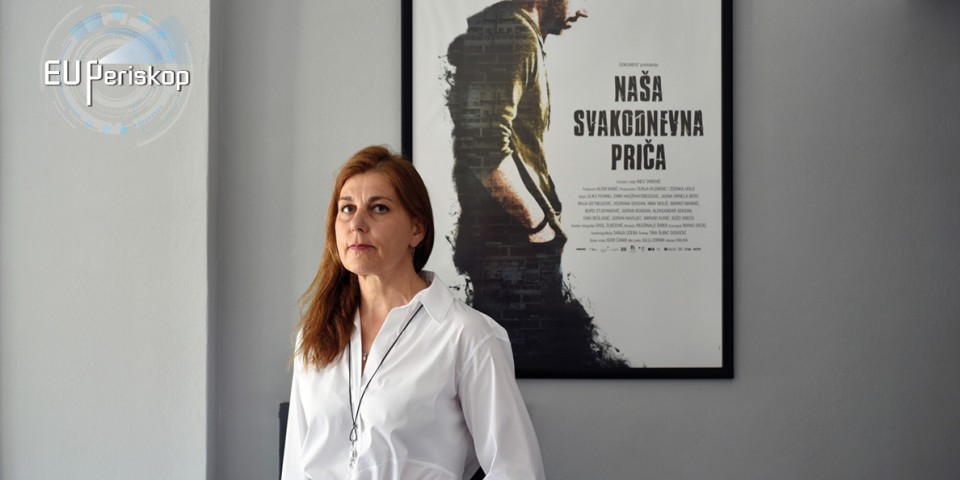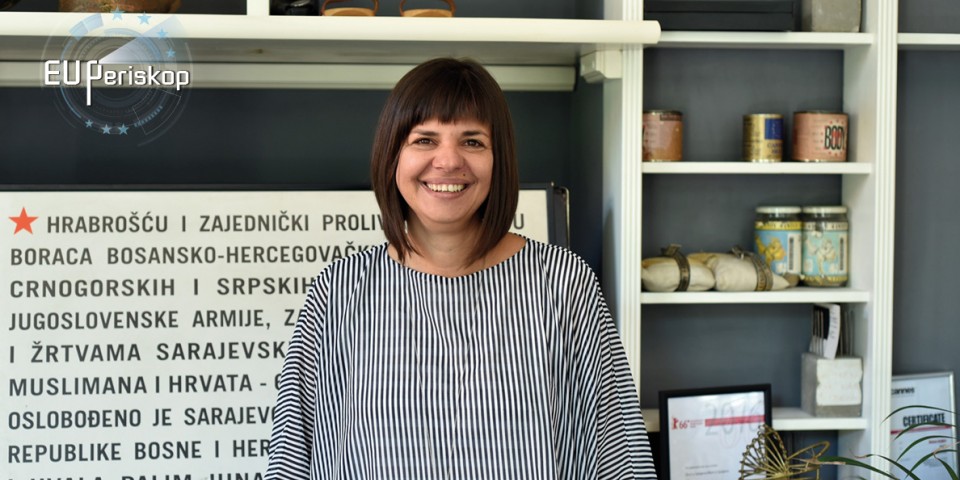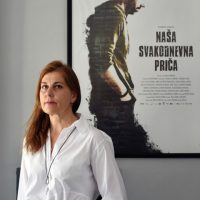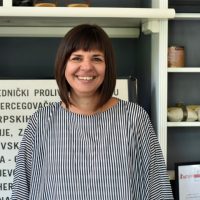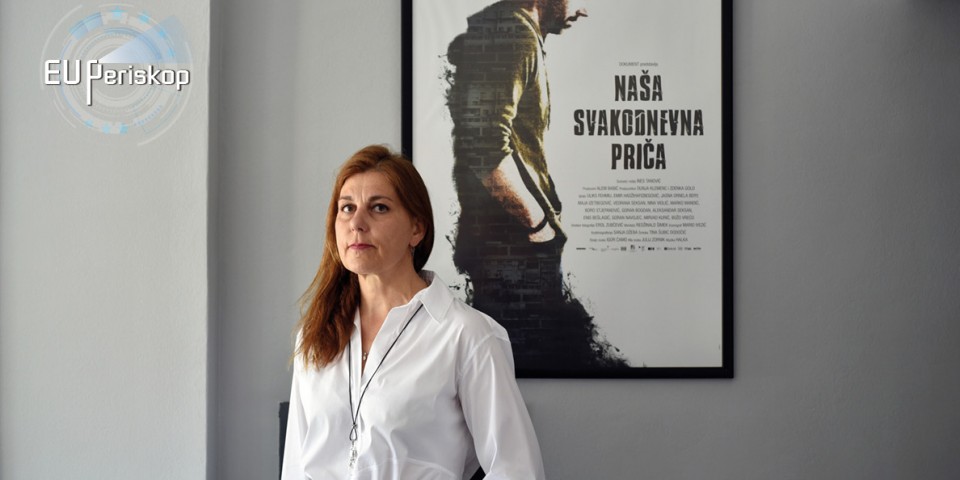
Creative Europe brings back BiH film to the European scene
The cultural and creative sectors represent rich European cultural heritage and contribute to development and shaping of the European future. The European Union is dedicated to promotion of cultural d...
The cultural and creative sectors represent rich European cultural heritage and contribute to development and shaping of the European future. The European Union is dedicated to promotion of cultural diversity and protection of cultural heritage, and supports the cultural and creative industries in order to boost economic growth and employment throughout Europe. The European Union programme, Creative Europe, supports the preservation and promotion of European diversity and assists the cultural and creative sectors through measured, sustainable growth and access to international markets.
By participating in the Creative Europe programme, BiH organisations and institutions have received funds for more than a hundred projects with a total value of approximately EUR 3 million. The MEDIA sub-programme of Creative Europe is designed to support the audio-visual industries, and BiH cinematography has been supported in the making of 10 films, with more than 60 films having received distribution assistance, and the region’s largest film festival supported.
The world premiere of the film The Son (2019), by BiH director and screenwriter Ines Tanović, opened the 25th Sarajevo Film Festival. The film showcases the life of a Sarajevo family and was awarded named Best Scenario at CineLink 2015. “I am extremely honoured that my film was selected to open the jubilee Festival. As a Director and Screenwriter, I have grown alongside the Festival, my shorts and documentaries were both in the competition and non-competition programs of the Festival, thus, it is a very special honour that our film, The Son, is opening the Festival”, said Tanović.
The making of The Son was supported by the MEDIA sub-programme. This support was highly instrumental to the Director and Screenwriter of the film in terms of enabling and facilitating the creative process. “We are more than happy to have received support from the MEDIA sub-programme. A pre-production budget, i.e. idea development, is extremely important to a Director and Screenwriter, but also to production, since you do not need to worry about finances and can fully focus on the project. The application is not simple, especially for us in this region who are not fluent in English and need to fill in all the forms and meet many administrative requirements, but with a quality project it is certainly feasible,” said Tanović. The MEDIA sub-programme has supported the development of 10 BiH documentaries and feature films, which is a testament to the quality and diverse topics screenwriters want to tap into. “As soon as the opportunity presented itself, we started getting funds. As Directors and Screenwriters, we compete on a European level regarding ideas, stories and visions. Our films are very successful at all the global festivals and I expect to see more and more films supported by the MEDIA sub-programme,” said Tanović.
Producer Amra Bakšić-Čamo has worked on 52 feature and short films, student projects, video works and TV shows and is one of the most sought-after and recognised producers of her generation. Three of the films she has produced were supported by the MEDIA sub-programme, and, as she herself says, her production company would have not survived were it not for continuous support from the MEDIA sub-programme. “The EU funds offer systemic investment. Currently, we are preparing for the shooting of Tabija (Fort) supported by the MEDIA sub-programme. Five years ago, we won Best Project at Cinemart and got funds from the MEDIA sub-programme,” said Bakšić-Čamo, who added that film Tabija is a fortunate example of producers managing to secure all production funds several years in advance.
Funding project development through the MEDIA sub-programme is very significant for the development and affirmation of BiH film, observed Bakšić-Čamo. “We have a specific problem – we do not have a one stop shop where we can apply. The MEDIA sub-programme is our second option. It enables you to spend a certain amount of time working on a project, i.e. Director, Screenwriter, Producer, Casting Director and all involved in the process work together. We can internationalise a project and apply for funds intended for third world countries, but we are becoming less and less attractive. Therefore, our membership in the MEDIA sub-programme is very important and one of the rare tools that provides stability to film production. “
For more than a decade, Amra Bakšić-Čamo has also been leading the CineLink Industry Days of Sarajevo Film Festival, a regional co-production market that successfully brings together colleagues from throughout Europe and enables networking and new cooperation between European cinematographers. Sarajevo Film Festival has been the beneficiary of MEDIA sub-programme support for 6 years already, thus enabling the Festival to maintain high professional standards and international recognition. “It is very important to maintain the link between films and festivals. At one point, they were a reference point for the artistic value of a film, but not anymore. Festival distribution is a way for an audience to notice you. The MEDIA sub-programme supports internationalisation of a project in the developmental process where assistance from Creative Europe is very significant. Festivals, and regional and European distribution, are all very important factors in the life of a film. From the Director and Producer’s point of view, a film is much more than a finished product to be put on the market or an art piece you exhibit in a gallery; it is more broad and complex, especially for our cinematography, which struggles to survive,” said Bakšić-Čamo.
Culture and creativity are instrumental in shaping the European future because of their dual cultural and economic roles, used to positively affect other sectors such as education and innovation. Cinematography is unique in the way that it showcases rich and diverse European cultures through the daily life of citizens, thus strengthening understanding. However, BiH film does not yet operate on the macro-European level, and Authors and Producers underline the importance of access to European funding and networks with European partners to provide a brighter future for BiH film. “BiH cinematography is an artistic branch that withdraws a lot of finances. It is an expensive form of art but, on the other hand, it is an industry that returns as much as it withdraws. We attract colleagues, creators and co-production companies, and spread visions from Bosnia and Herzegovina. So, the money comes back, and we feel we are winners even if only the costs are covered with no profit because we at least have a product – a piece of art. Moreover, it is something that promotes BiH beyond our borders. In that regard, it is a multi-fold branch that promotes, earns and employs people in many ways,” said Tanović.
Tanović and Bakšić-Čamo stress that revitalisation of the role of cinematography must be comprehensive and multidisciplinary. We must increase financial support, promotion, distribution, networking of film workers and cinemas, and educate new generations so that they know and appreciate local production histories and learn to appreciate film. “It is not enough to provide money for the making of a film and say you have supported cinematography. We need to support cinematography in its entirety and focus on what we have, what we can do and what we want to be,” said Tanović.

